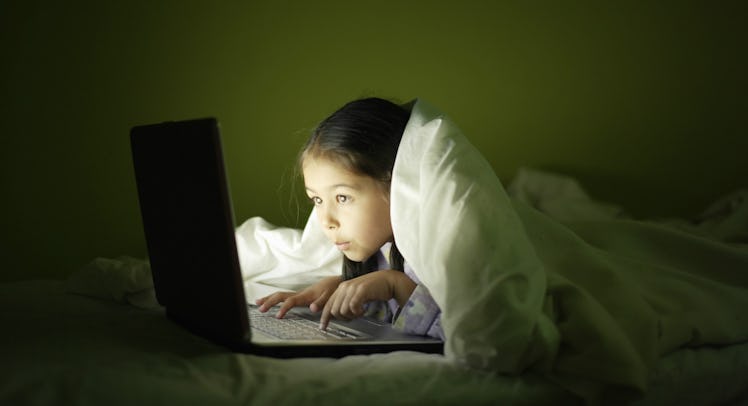Experiment Finds Exposing Kids to Light Before Bed Affects Their Sleeping Habits
Kids who interact with screens or bright lights before bed see a severe drop in melatonin levels, according to a new study.

As a parent, it’s natural to be concerned about the ways technology may be affecting your child. Every day, a study seems to shed new light on the benefits or detriments of exposing kids to tech. Today, that study is from the journal Physiological Reports and actually focuses on shedding light. It suggests that exposing kids to bright lights, including smartphone or tablet screens, too close to bedtime can alter their sleeping habits.
To conduct the experiment, researchers measured levels of melatonin, the hormone that regulates sleep, in a group of 10 children ranging from ages 3-5. Initially, the children were put on a regular sleep schedule for five nights, with researchers monitoring their saliva several times a day to check their melatonin levels. Then, on the sixth day, the kids’ homes were transformed into “low-light” areas, which meant covering up all the windows with black plastic and using low-wattage light bulbs instead of regular ones.
In addition to spending the night in “low-light” conditions, the researchers also had them spend the next day there as well. Except that for an hour before bedtime, the preschoolers were exposed to bright light, playing on a light table meant to replicate the effects of using a smartphone or tablet. The researchers then measured the children’s melatonin levels one last time and discovered that their levels had dropped dramatically after being exposed to bright lights.
“We found that the bright light exposure suppressed melatonin by almost 90 percent, and the effects persisted even after the kids returned to dim light,” said Dr. Akacem, an instructor at the University of Colorado Boulder and the lead author of the study. According to the study, even fifty minutes after the light was gone, the majority of the children were still not back to 50 percent of the melatonin levels they were experiencing the day before.
Of course, the science community has long believed that exposure to bright lights is not good for sleep in adults. However, this new study suggests that lights too close to falling asleep can affect kids below the age of five in an even more severe manner. Why? “The lens is a lot clearer in preschool children,” Dr. Akacem said. “The pupils are larger, which allows more light to hit the retina and a stronger signal to the clock.”
This article was originally published on